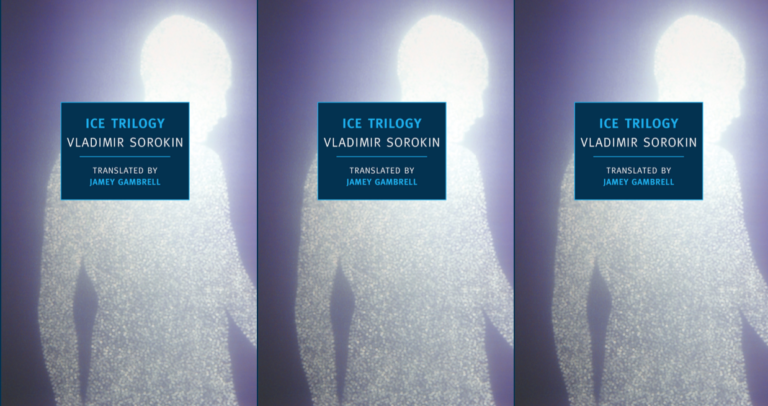The Ploughshares Round-Down: Ditch the Publishing Gods
In mid-March, Time published the first ever in-depth interview with Jonathan “Jony” Ive, the Senior Vice President of Design at Apple. In it, Ive described the experience of working toward an excellent—and aesthetically pleasing—product:
Steve and I spent months and months working on a part of a product that, often, nobody would ever see… We did it because we cared, because when you realize how well you can make something, falling short, whether seen or not, feels like failure.
As writers, many of us have felt this way about our written work. Because we believe in what we’re doing, we’re willing to hack away at another draft, risk rejection, stay up all night aching for the one word that really fits—even if no one else will notice. We want our work to be as good as we know it can be. Anything less feels like failure.
But our refusal to accept failure too often stops when our writing stops. We write something amazing, then submit it all over the place. No acceptances? No bites from a press? It dies a slow death in a computer file. It’s like we believe we have power and ownership over the creation of a written work, but not at all over whether it reaches an audience. Submitting is as far as our powers take us: the rest is up to the publishing gods.
Um. #EwIhatethis.
Here’s the deal. We didn’t become writers in order to write stuff and keep it to ourselves. Many of us became writers because we were profoundly impacted by the written word, and wanted to have that kind of impact on others. So if we succeed at writing something amazing, and then fail to connect it with any actual human beings, we’ve failed at a significant part of what drove us to the page in the first place.
If, like Ive and Jobs, we have a sense of what our writing can do, we can’t settle for submitting and crossing our fingers. Why knock and wait politely when we’re capable of bigger, crazier things? We know the impact our work can have; let’s do the work to make it felt. “Falling short, whether seen or not, feels like failure.”
Three Reasons to Ditch the Publishing Gods.
(a.k.a. Go Make Your Own Impact.)
1. More is not Better.
A few days after the Jony Ive Time interview published, Seth Godin referenced Ive’s caring/failure quote in his daily blog, saying that if we truly care about our “product,” we should strive to make it better—to blow people’s minds—instead of merely upping our productivity:
[T]he restaurant makes the menu longer, instead of figuring out how to make even one dish worth traveling across town for. We add many slides to our presentation before figuring out how to utter a single sentence that will give the people in the room chills or make them think…
We opt for more instead of better.
As writers, our frenzied post-writing race to a Submission Pileup is a version of More, as opposed to Better. If we haven’t had success, we just submit to different publications, or try again and again—a different poem this time, a second novel. These are noble efforts, and I can’t overstate the courage and perseverance they require.
But we have to be willing to question whether publication is even what we want. After all, not everyone becomes a writer specifically to “publish stuff.” Many people become writers so that they can communicate with and reach other people. They then gravitate toward publishing because they assume it’s the best (or only) way to communicate. Is it? Or are there other options?
If you’re in a genre that still has hope of making money, and if you’re into making a living via writing, then knocking at the publishing door makes sense. In spite of how much is changing about our industry, being published can still often offer distribution, a trusted brand, an advance, and/or some PR to get the word out.
But for the rest of us, we should be regularly reassessing why we write. When we know what we’re going for (human impact? fame? education? hope? all? other?), we can get innovative about how to achieve it. Otherwise, we’ll just blindly follow Writer Procedure—and we’ll end up doing more instead of better.
2. When We Care Enough, We Raise the Bar.
 For the sake of argument, let’s say we began writing because we wanted to be able to give other human beings the same kind of great experience that other authors have given us. If this is true, there’s an element of service to our work: of care or compassion for other beings. Hooray.
For the sake of argument, let’s say we began writing because we wanted to be able to give other human beings the same kind of great experience that other authors have given us. If this is true, there’s an element of service to our work: of care or compassion for other beings. Hooray.
But over time, we often squash this care by blocking people out. After all, we’re advised while writing to set aside the idea of “audience” so that we don’t over-edit ourselves, or write what we think people want to hear. When we’re finished, we’re taught to turn our work over to an editor or agent who’ll take it to a readership with which she (not us) is familiar. If we don’t get published, we often blame society for being unwilling to be challenged by our high (and apparently challenging) art. Oh darn, our humanity.
Godin writes,
When we care enough, we raise the bar. Not just for ourselves, but for our customer, our audience and our partners.
We don’t often associate the words “customer” or “service” with the creative writing profession, but behind all our craftsmanship lies that original, motivating, human-connection thing. And it can drive great innovation when it comes to reaching readers. What if caring about your work means caring enough about people to make sure they encounter it? If you focus more on people than on publishing, what might change about your approach to getting work out beyond your word processor—with or without publication?
3. It’s Time to Experiment with Audacity.
If it’s readers you want, go get them. If you believe your work can have impact, do the work to make sure it reaches a human being. “Anything less feels like failure.”
 Don’t leave connection in someone else’s hands, and don’t wait for credentials to legitimize your work. Stop seeing publication in Esteemed Journal ABC as superior to moving a group of people in your hometown. It’s not. Question any resistance to volunteer efforts (hospice, children, prison) or to personal performances (readings, StageIt, local collaborations). Stop exhausting your imagination on what publications you should submit to, how you could start one of your own, or how you could revise your work for the market of a particular press.
Don’t leave connection in someone else’s hands, and don’t wait for credentials to legitimize your work. Stop seeing publication in Esteemed Journal ABC as superior to moving a group of people in your hometown. It’s not. Question any resistance to volunteer efforts (hospice, children, prison) or to personal performances (readings, StageIt, local collaborations). Stop exhausting your imagination on what publications you should submit to, how you could start one of your own, or how you could revise your work for the market of a particular press.
There are better questions than how to get past (or become your own) gatekeepers. What other forums, venues, possibilities are there? There are people who need what you’ve written. Not all of them read magazines or literary journals. How will they find you? How can you create access? Where can your work get seen? Where can you personally deliver it? Go make something happen.
Give us ideas!
If you’re getting your work out in some non-publishing way, tell us about it!
How are you ditching the Publishing God(s)?


